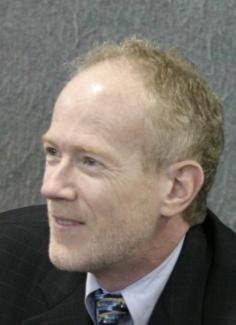
Not Just Wishful Thinking
January 10, 2013

Ensuring that all our children are ready to succeed when they enter kindergarten is a tremendous task, made much more difficult in the United States by high levels of poverty and low levels of parental education. One in four preschoolers lives in poverty, nearly half in low-income families. Twenty-seven percent are born to mothers without a high school diploma or GED. Assessments at kindergarten entry show that surprisingly many children from middle-income families are poorly prepared to succeed. There are many public policies that could contribute to reducing this problem, and there is no single solution, but let us consider one that seems obvious and for which there is considerable evidence, public preschool programs.
Public preschool education could be an important part of the solution, but currently it is not given a chance. Ensuring school readiness through preschool education is precluded by low levels of investment and high levels of wishful thinking. Far too many children lack access to preschool education, and it is least available to those who could benefit most. The majority of 3-year-olds in homes where Spanish is the primary language don’t attend any preschool program. Some don’t qualify for publicly funded programs because their parents work long hours to keep them out of poverty. Others live in states that don’t fund any preschool program at all or in neighborhoods that aren’t served. As a nation we spend far more public money on prisons than on preschools. Federal and state governments together spend less on preschool education than Americans spend on pet food.
The latest research on preschool program outcomes to cross my desk is the third grade follow-up of the national randomized trial of Head Start. It is now clear: Head Start produces no perceptible lasting gains in any domain of child development. This does not rule out very small persistent gains, but Head Start is not meeting its goals. Yet, much of the field seems to be in denial, responding that bad public schools erode the effects of Head Start. Somehow they fail to see that even initial gains are quite small and that children in the study made much larger gains in kindergarten and the early grades than they did in Head Start. Other studies confirm that learning gains in kindergarten are much larger than in Head Start. The root of the problem is that Head Start is locked into a program model that fails to focus on intensive education and pays teaching staff abysmally. This model has failed every true experimental test (Early Head Start, the Comprehensive Child Development Program, the Child and Family Resource Centers).
State pre-K programs often are little better than Head Start since they too usually lack the funding and standards of public education for kindergarten. State subsidized child care (as opposed to preschool education) is so poor that it may actually harm child development on average. Clearly, just shifting Head Start to the states is not enough to solve the problem. However, for all the faults of public education, one only has to look at growth curves for learning over time to conclude that if preschool were supported like kindergarten, children would be much better prepared. And, looking at the programs found to produce substantive lasting gains for children in well-controlled studies, the common theme is that they are much more educationally intensive than our current preschool programs. It is time to face facts and change directions.
If the United States is to effectively address the school readiness problem, public preschool programs must provide much more intensive education to many more children. Only public preschool education for all children is likely to achieve this goal. Means-tested programs exclude too many children who need help. The federal government should incentivize states to offer preschool programs that meet a small number of well-defined criteria for quality and set a goal to serve all children by a certain date. Then let states innovate as they have a track record of creating flexible public-private preschool partnerships. The focus of accountability should be on strong teaching and truly substantive gains in broad child development. Head Start should be integrated into public education as a funding stream to enhance the education of young children in poverty so that they start early and receive the best teachers and smallest classes. Once we stop thinking of preschool as charity and start thinking of it as an investment in everyone’s future we might actually do what is necessary to meaningfully improve the education of young children.
– Steve Barnett, Director, NIEER
This entry is cross-posted to The National Journal and is in response to the post “Pre-K for Everyone?” by Fawn Johnson.
The Authors
W. Steven (Steve) Barnett is a Board of Governors Professor and the founder and Senior Co-Director of the National Institute for Early Education Research (NIEER) at Rutgers University. Dr. Barnett’s work primarily focuses on public policies regarding early childhood education, child care, and child development.
About NIEER
The National Institute for Early Education Research (NIEER) at the Graduate School of Education, Rutgers University, New Brunswick, NJ, conducts and disseminates independent research and analysis to inform early childhood education policy.

